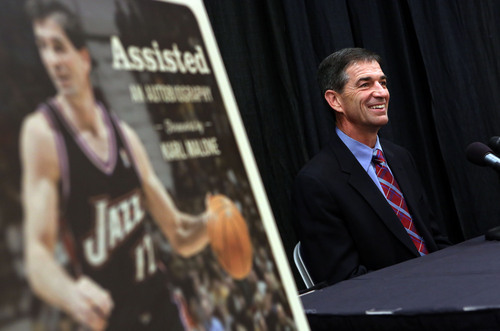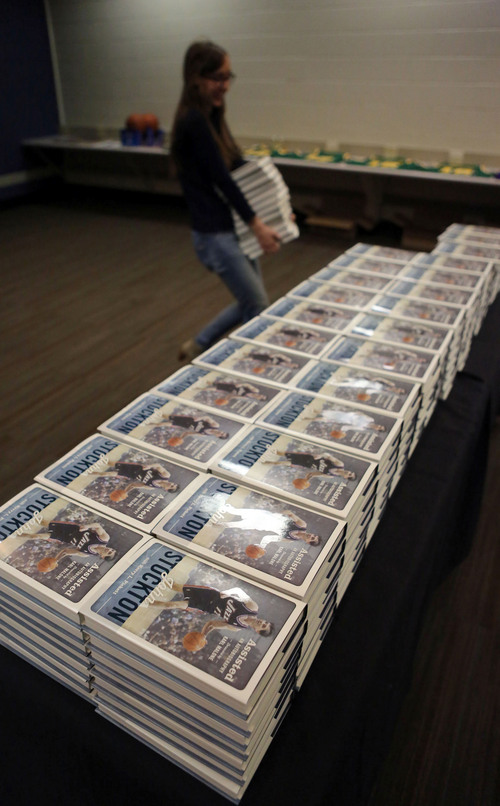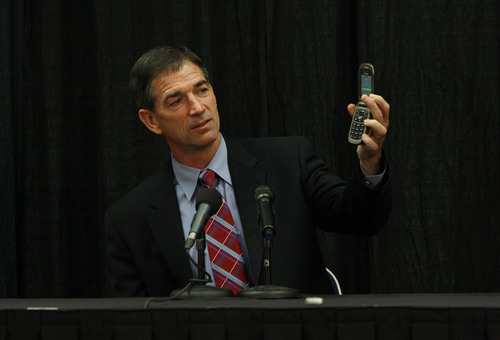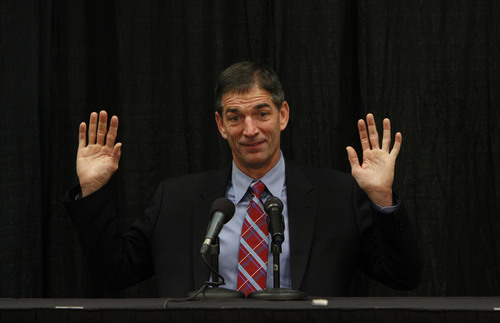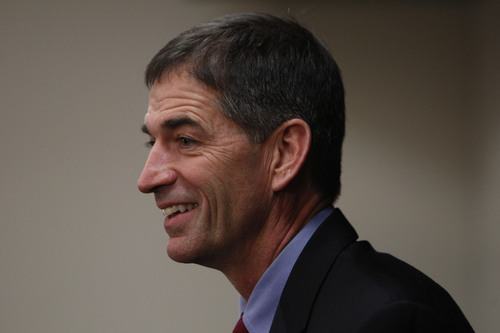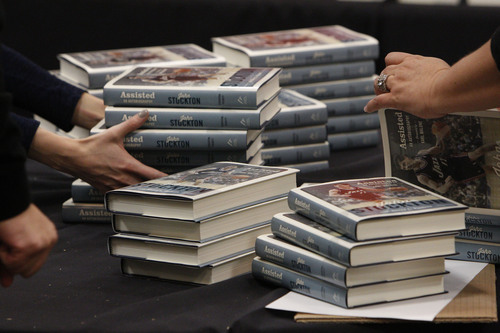This is an archived article that was published on sltrib.com in 2013, and information in the article may be outdated. It is provided only for personal research purposes and may not be reprinted.
When the Jazz's latest search for solutions resulted in Diante Garrett's playing the entire fourth quarter in his first appearance with the team, coach Tyrone Corbin offered simple reasoning for choosing him: "He's a point guard."
The Jazz once had one of those guys, as the statue on the EnergySolutions Arena plaza reminds everyone. The living version of John Stockton was back in the building this weekend, promoting his book. His presence also drove home the point that he's irreplaceable. In the 10-plus seasons since his departure, the Jazz have used 16 starters at his position (as of Alec Burks' starting debut Friday), with injured rookie Trey Burke eventually to become the 17th.
Stockton never played for a Jazz team - or any team, at any level - that is doomed to struggle like the current model, which lost its first eight games before Garrett helped rescue Wednesday's win over New Orleans. In a news conference Friday, Stockton said he's thankful that coach Frank Layden and teammates such as Rickey Green, Thurl Bailey and Mark Eaton "changed the culture of the Utah Jazz" and became a playoff team just before he joined them.
"Right now, it's tough," Stockton said, suggesting the Jazz's young players have an opportunity to rise above expectations. He's eager to watch Burke play after the rookie recovers from a broken finger, having spent some time with him and Burks this past summer in Spokane, Wash.
Stockton's hometown is a major focus of the book, which he cautions is "not a tell-all." Yet considering Utahns' attachment to Stockton and his place in the state's sports history over those 19 seasons, his stories should be meaningful to Jazz fans. Once you get beyond the novelty of it all — John Stockton wrote a book! He's doing interviews! — there's just enough untold and nicely retold material that makes "Assisted" worthwhile.
Aided by Kerry Pickett, his youth basketball coach, Stockton wrote every word of the book in what he labeled "a long, arduous process." His motivation was mostly thanking influential people and preserving family history.
Anyone looking for a thorough review of the Jazz's glory years may be disappointed, as Stockton only briefly details the 1997 and '98 NBA Finals vs. Chicago. He does emphasize that he'd rather play in "a hundred" Finals and lose, rather than never have that opportunity.
Stockton's two Olympic appearances get much more play, including the disclosure that his willingness to dismiss sponsor concerns may have been instrumental in keeping the entire "Dream Team" concept alive.
And there's more in the book that surprised me, even having studied Stockton closely in his early years with the Jazz. The whole Isiah Thomas thread is intriguing, including the story of how Thomas once called Stockton's father to clarify the controversy about being unhappy not to have made the Dream Team. Stockton also wrote of spending a summer afternoon with Malone at Hogle Zoo, soon after the Mailman's arrival in Utah — and how they basically went unnoticed, as unlikely as that seems.
And he told of hiring famed agent David Falk to help negotiate a contract at a critical stage of his career, only to skirt his counsel and personally reach a deal with Jazz owner Larry Miller.
If there's anything mysterious or remotely controversial, it would be Stockton's description of "a stubborn undertow of friction" during his final season of 2002-03, when his teammates — not named — included Carlos Arroyo, Mark Jackson and DeShawn Stevenson. In Friday's news conference, Stockton said that subject was worth discussing mainly because of how he chose not to address it at the time, which played into his decision to retire at age 41.
In turn, he angered his wife and Malone by making his brief announcement the day after a first-round playoff series against Sacramento, rather than telling them first.
In writing the book, Stockton said he purposely relied on his memory for a more pure retelling, rather than researching past games. The result is some estimates and generalities in his reporting. In the case of Game 5 in an epic 1988 playoff series with the Los Angeles Lakers, he mixed up the final sequence of events.
But that's quibbling. Stockton shares enough of himself and his life to make the book worthwhile. In the news conference, he spoke rather expansively in fielding questions, even if he said his next move would be to "crawl back into my cave."


